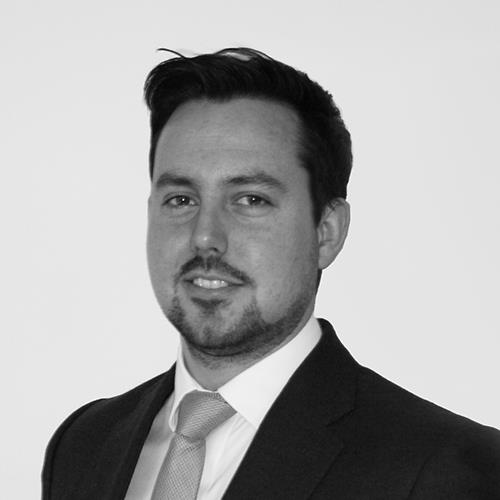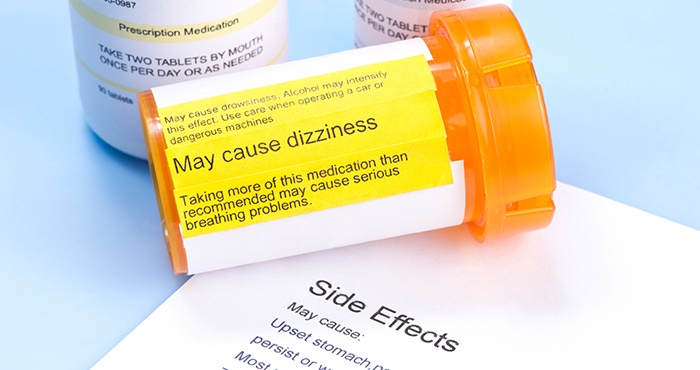

If you're on a pharmacovigilance career path, or are looking to start out in the field, there are many development opportunities to explore. However, navigating these options can be challenging without guidance. We’ve put together our top tips to help you advance your pharmacovigilance career, offering detailed advice and exclusive industry insights.
In this guide, you’ll find information about:
Starting out in pharmacovigilance
Most pharmacovigilance professionals start their career in a case processing role, such as a drug safety associate or pharmacovigilance officer.
Case processing largely involves entering patient reported side-effects of pharmaceutical products into a database to be evaluated by risk management teams.
Three pharmacovigilance career paths
After working in a case processing role, career progression in pharmacovigilance will typically take one of three possible paths:
Line management
The line management route in pharmacovigilance typically involves progressing through roles such as senior drug safety officer, manager and eventually director. This path focuses on leadership, team oversight and strategic planning within drug safety departments.
Progressing into line management is an exciting opportunity for growth, but it can come with its own set of challenges. Senior roles are often highly competitive, requiring not only experience but also strong leadership and communication skills.
Technical
The technical route in pharmacovigilance includes specialised roles in signal detection, risk management and epidemiology. These are often positions like senior pharmacovigilance scientist, risk management specialist and senior vigilance manager.
Signal detection roles require greater scientific expertise than processing roles, with a focus on identifying data patterns and uncovering side effect causes. These skills are developed through both experience and training. If your company does not offer training in these areas, there are organisations that provide courses such as The Pharmaceutical Information and Pharmacovigilance Association (PIPA).
Risk management roles in pharmacovigilance are senior positions focused on evaluating health risks identified by case processing and signal detection teams. These professionals produce risk-benefit reports and advise drug safety physicians on actions such as dosage adjustments.
With senior roles often being highly competitive and technical pharmacovigilance positions requiring specific skill sets, understanding what’s needed can make all the difference in developing your career.
Regulatory affairs and medical safety
A Qualified Person Responsible for Pharmacovigilance (QPPV), or a safety physician, is a legal requirement for marketing authorisation holders in places like the European Union and UK. This person is responsible for the establishment, maintenance, and oversight of the pharmacovigilance system, including the safety profile of medicinal products.
Progressing into a QPPV or safety physician role typically involves developing expertise in drug safety, regulatory compliance, and medical evaluation. Career paths often begin with roles such as drug safety associate, pharmacovigilance scientist, or medical reviewer, and advance toward senior safety leadership positions. These roles focus on regulatory accountability, risk management, and strategic oversight of product safety across global markets.
Transitioning into these positions offers a unique opportunity to shape how medicines are monitored and managed to protect public health. These roles present rewarding challenges and require solid pharmacovigilance experience, strong regulatory knowledge, sound decision-making, and a medical qualification in the case of safety physicians. Success depends on both technical expertise and clear communication with regulators and cross-functional teams.
What are the barriers to career progression in pharmacovigilance?
Transitioning from case processing to senior technical roles in signal detection or risk management can be challenging. Pharmaceutical companies prioritise candidates with proven experience in pharmacovigilance or related regulatory fields. In some cases, despite years in case processing, many applicants still fall short of the requirements for senior technical positions.
Unlike many other pharmaceutical jobs, where large pharma companies offer strong progression, gaining experience in pharmacovigilance can be harder as case processing and technical teams are often based on separate, international sites. Employees in isolated departments often lack technical exposure and contact with the more senior detection and risk management staff, typically based at the company's global headquarters.
However, with the right strategy and proactive steps, it's possible to bridge this gap and build a successful career in pharmacovigilance. The following actions can help you gain the skills, experience and visibility needed to move forward.
Steps to progress your pharmacovigilance career
Depending on whether you’re a mid-level professional, or you’ve just started out in your career, there are certain steps you can take to develop your career in pharmacovigilance. Some stages we recommend you take are:
Clarify your long-term career goals: decide whether you want to move into leadership, regulatory strategy or a specialist scientific role.
Enhance your technical skills: deepen your expertise in signal detection, risk management plans and safety database tools if you’re working to develop your career in technical roles.
Pursue relevant certifications or training: consider programs in pharmacovigilance, regulatory affairs or project management (e.g., PRINCE2, DSRM). For technical roles, make sure to stay up to date with attending conferences for global regulations (e.g., EMA, FDA, MHRA) and evolving compliance standards.
Seek mentorship and peer feedback: connect with senior colleagues or mentors to gain insights and constructive feedback.
Take on cross-functional projects: volunteer for initiatives that involve medical affairs, clinical development or regulatory teams if you’re pursuing a career in line management. You could also use this opportunity to develop your soft skills such as strong communication and supporting struggling colleagues.
Document your achievements: keep a record of key contributions, metrics and outcomes to support promotions or job changes. If you’re pursuing a career in line management, you could note the times you went above doing the expected minimum requirements.
Build your professional network: attend industry events, join pharmacovigilance forums and engage on platforms like LinkedIn to stay visible and informed. Attending conferences are one of the most effective ways to expand your network and stay up to date with recent information.
Companies to work for to help progress your career
If you're in pharmacovigilance and have goals to expand into a technical role or line management, your choice of employer can strongly influence your growth prospects. Consider moving to a company that supports skill development, if you think your opportunities are limited. What may seem like a lateral move now can lead to greater long-term prospects.
Working in pharmacovigilance case processing roles at the following types of companies will offer the greatest prospects for development:
Small pharma companies
Unlike large pharmaceutical companies, smaller firms often operate with limited resources, which means their case processing teams are typically involved in a broader range of day-to-day tasks. This can often open opportunities for members of the processing team to work more closely with the signal detection and risk management staff, even taking on some of their responsibilities under supervision. In addition, the smaller team structures often allow individuals to gain early exposure to line management responsibilities, such as mentoring junior colleagues or coordinating small teams.
Such experience makes it easier to transition into both technical and line management roles. If your company is small and you don’t have regular appraisals, it’s recommended you discuss your long-term career goals with your HR department.
Sites with global activities
Working at a company where case processing roles are based at the head office or regional headquarters provides a much greater opportunity to collaborate with and learn from experienced colleagues. In comparison, when technical and processing teams operate from different locations, it can be more difficult to gain cross-functional exposure. However, with initiative and planning, progression is still achievable.
Big headquarter sites also offer more straightforward career pathways since there is a clear hierarchy. This environment can help you build both technical expertise and leadership skills, preparing you for future roles in team coordination or departmental management. The caveat to working in this type of company is the competition, however, these companies have established managerial teams, which are a great way to express your career goals.
Regulatory and drug safety consultancies
Many pharmaceutical companies outsource their signal detection to service providers such as Regulis or Apcer, who specialise in this field. These drug safety consultancies have a high volume of work from various companies, which make them great companies to work for to gain exposure to a wide variety of products. They’re also good companies for career development, offering signal detection training to case processors. In addition, the fast-paced and team-oriented nature of these organisations can provide early opportunities to take on line management responsibilities, such as mentoring junior staff or coordinating project teams. This supports career development in both technical and leadership pathways.
Health authorities
Sometimes known as competent authorities, these are organisations that grant approval for pharmaceutical products. They include the European Medicines Agency (EMA) and the Medicines and Healthcare Products Regulatory Agency (MHRA). These companies offer comprehensive training and provide roles that involve reviewing and validating the evaluations submitted by pharmaceutical companies; an excellent way to build strong technical expertise in pharmacovigilance.
In addition to technical development, these organisations also offer structured environments with clear hierarchies, making them ideal for gaining early experience in line management. Professionals may have the opportunity to lead review teams, coordinate cross-functional projects or mentor junior staff, all of which help build the leadership and operational skills needed for future management roles in drug safety.
Example pharmacovigilance career paths
To demonstrate examples of career paths that have proven success, below are some of the candidates that Proclinical's pharmacovigilance team has helped to further their development.
Candidate A: Pharmacist to drug safety analyst
This candidate began their pharmaceutical career as a pharmacist, before getting a drug safety analyst job. They then spent six years working at a small biopharmaceutical company where they gained exposure to risk management responsibilities. They’re now working in one of the world's largest pharmaceutical companies as a senior risk manager.
Candidate B: Drug safety associate to senior signal detection and risk role
This individual got their first drug safety job doing case processing and quality checking of case processing at a global generics company, and after a year they were promoted into the signal detection and risk team. After spending two years in that role, they had gained enough experience to land a new senior signal detection and risk role at a top 10 pharma company.
Candidate C: Case processor to line management
After completing their PhD, this candidate joined a large contract research organisation as a case processor. They were able to gain successive promotions over several years and worked their way up to a line management position within the company.
Develop your drug safety career with Proclinical
At Proclinical, we are specialists in pharmacovigilance recruitment and help professionals to find their ideal position and reach their career goals. See our latest pharmacovigilance jobs or simply send us your CV so our dedicated team can reach out to you when we have a suitable position.
Do you agree with our top tips? Have you taken a different career path in your drug safety career? Share your experiences with us in the comments below.
.png)





.png)

.png)
.png)

.png)
.png)












